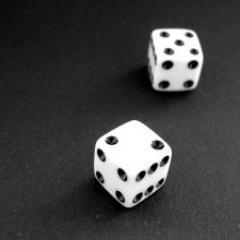結果
| 問題 | No.309 シャイな人たち (1) |
| コンテスト | |
| ユーザー |
 Min_25 Min_25
|
| 提出日時 | 2015-12-02 16:06:33 |
| 言語 | C++11(廃止可能性あり) (gcc 15.2.0 + boost 1.89.0) |
| 結果 |
AC
|
| 実行時間 | 57 ms / 4,000 ms |
| コード長 | 4,256 bytes |
| 記録 | |
| コンパイル時間 | 624 ms |
| コンパイル使用メモリ | 68,364 KB |
| 実行使用メモリ | 10,700 KB |
| 最終ジャッジ日時 | 2024-09-14 07:56:37 |
| 合計ジャッジ時間 | 1,903 ms |
|
ジャッジサーバーID (参考情報) |
judge4 / judge5 |
(要ログイン)
| ファイルパターン | 結果 |
|---|---|
| sample | AC * 3 |
| other | AC * 13 |
コンパイルメッセージ
main.cpp: In function ‘int main()’:
main.cpp:92:18: warning: ignoring return value of ‘int scanf(const char*, ...)’ declared with attribute ‘warn_unused_result’ [-Wunused-result]
92 | int R, C; scanf("%d %d", &R, &C);
| ~~~~~^~~~~~~~~~~~~~~~~
main.cpp:95:28: warning: ignoring return value of ‘int scanf(const char*, ...)’ declared with attribute ‘warn_unused_result’ [-Wunused-result]
95 | rep(i, R) rep(j, C) scanf("%d", &r), P[i][j] = r / 100.;
| ~~~~~^~~~~~~~~~
main.cpp:96:28: warning: ignoring return value of ‘int scanf(const char*, ...)’ declared with attribute ‘warn_unused_result’ [-Wunused-result]
96 | rep(i, R) rep(j, C) scanf("%d", &S[i][j]), S[i][j] = 4 - S[i][j];
| ~~~~~^~~~~~~~~~~~~~~~
ソースコード
#include <cstdio>
#include <cassert>
#include <ctime>
#include <algorithm>
#include <iostream>
#include <vector>
#include <queue>
#include <utility>
using namespace std;
using uint64 = unsigned long long;
#define rep(i, n) for (int i = 0; i < int(n); ++i)
constexpr int ipow(int base, int e, int res = 1) {
return e == 0 ? res
: (e & 1) ? ipow(base * base, e / 2, res * base)
: ipow(base * base, e / 2, res);
}
using Pair = pair<double, double>;
Pair operator + (const Pair& lhs, const Pair& rhs) {
return Pair(lhs.first + rhs.first, lhs.second + rhs.second);
}
// precision ...
Pair operator - (const Pair& lhs, const Pair& rhs) {
return Pair(lhs.first - rhs.first, lhs.second - rhs.second);
}
Pair& operator += (Pair& lhs, const Pair& rhs) {
return lhs = lhs + rhs;
}
constexpr int N = 11;
constexpr int NH = (N + 1) >> 1;
constexpr int three_N = ipow(3, N);
double P[N][N];
int S[N][N];
Pair dp[2][1 << N];
Pair cumu[three_N];
int offsets[1 << N];
uint64 conv_s1[1 << N];
int conv_s2[2][2][1 << (3 * NH)];
template <typename T>
void arith_transform_plus(T* A, int lvn) {
int n = 1 << lvn;
reverse(A, A + n);
for (int lvm = lvn; lvm > 0; --lvm) {
int m = 1 << lvm;
int mh = m >> 1;
for (int r = 0; r < n; r += m) rep(j, mh) A[r + j] += A[r + mh + j];
}
}
template <typename T>
void sum(T* A, int lv, T* res) {
int total = 1 << lv;
int pos = 0;
rep(i, total) {
res[pos++] = A[i];
int f = i;
int t = 1;
while (f) {
int r = f & -f;
int ofs = offsets[i ^ r];
rep(j, t) res[pos + j] = res[ofs + j] - res[pos - t + j];
pos += t;
t <<= 1;
f ^= r;
}
}
}
int ctz(int n) {
return __builtin_ctz(n);
}
int pop_count(int n) {
return __builtin_popcount(n);
}
int main() {
int R, C; scanf("%d %d", &R, &C);
int CH = (C + 1) >> 1;
int r;
rep(i, R) rep(j, C) scanf("%d", &r), P[i][j] = r / 100.;
rep(i, R) rep(j, C) scanf("%d", &S[i][j]), S[i][j] = 4 - S[i][j];
int total = 1 << C;
// pre
int ofs = 0;
rep(i, total) offsets[i] = ofs, ofs += 1 << pop_count(i);
rep(i, total) {
uint64 f = 0;
rep(x, C) if (i & (1 << x)) f |= 1ull << (3 * x);
conv_s1[i] = f;
}
rep(h, 2) rep(c, 2) rep(i, 1 << (3 * CH)) {
int points[NH];
rep(x, CH) points[x] = (i >> (3 * x)) & 7;
if (c == 1) {
if (h == 0) {
points[CH - 1] += 1;
} else {
points[0] += 1;
}
}
rep(x, CH - 1) if (points[x] >= 4) points[x + 1] += 1;
rep(x, CH - 1) if (points[CH - 1 - x] >= 4) points[CH - 2 - x] += 1;
int s = 0;
rep(x, CH) if (points[x] >= 4) s |= 1 << x;
if (c == 0) {
if (h == 0) {
if (points[CH - 1] >= 4) s = -s;
} else {
if (points[0] >= 4) s = -s;
}
}
conv_s2[h][c][i] = s;
}
// dp
auto* curr = dp[0], *next = dp[1];
fill(curr, curr + total, Pair(0, 0));
curr[0] = Pair(0., 1.);
arith_transform_plus(curr, C);
sum(curr, C, cumu);
rep(y, R) {
fill(next, next + total, Pair(0, 0));
rep(s2, total) {
double p = 1.0;
rep(x, C) p *= (s2 & (1 << x)) ? P[y][x] : 1. - P[y][x];
if (p == 0) continue;
uint64 f2 = 0;
rep(x, C) if (s2 & (1 << x)) f2 |= uint64(S[y][x]) << (3 * x);
auto s1 = s2;
int ofs = offsets[s1] + (1 << pop_count(s2)) - 1;
do {
if (cumu[ofs].second) {
uint64 f = conv_s1[s1] + f2;
int lo = f & ((1 << (3 * CH)) - 1);
int hi = f >> (3 * CH);
int nstate = 0;
if (conv_s2[0][0][lo] < 0) {
nstate = (-conv_s2[0][0][lo]) | (conv_s2[1][1][hi] << CH);
} else if (conv_s2[1][0][hi] < 0) {
nstate = (conv_s2[0][1][lo]) | ((-conv_s2[1][0][hi]) << CH);
} else {
nstate = (conv_s2[0][0][lo]) | (conv_s2[1][0][hi] << CH);
}
next[nstate] +=
Pair(p * (cumu[ofs].first + pop_count(nstate) * cumu[ofs].second),
p * cumu[ofs].second);
}
s1 = (s1 - 1) & s2;
ofs -= 1;
} while (s1 != s2);
}
swap(curr, next);
arith_transform_plus(curr, C);
sum(curr, C, cumu);
}
printf("%.12f\n", cumu[0].first);
return 0;
}
